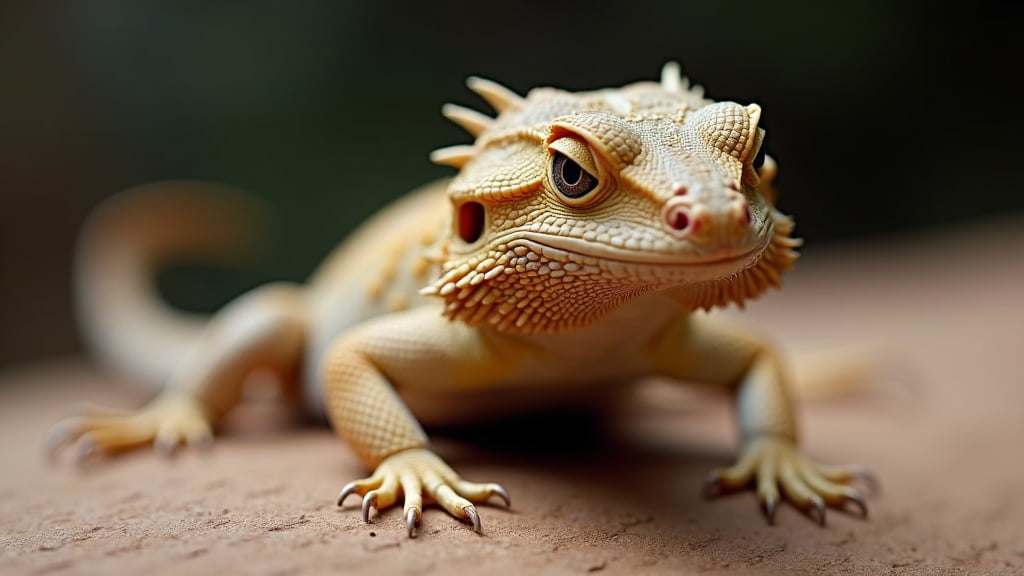Keeping a bearded dragon healthy is a rewarding experience, but it comes with its challenges, especially when it involves digestive issues. As someone who has had the pleasure of raising several of these majestic creatures, I understand how distressing it can be to see your scaly friend uncomfortable. Below, we’ll explore common digestive problems in bearded dragons and offer solutions to ensure your pet remains happy and healthy.
Types of Digestive Issues
Impaction
One of the most common digestive problems in bearded dragons is impaction, where indigestible materials accumulate and block the digestive tract.
Causes
- Improper substrate: Loose substrates like sand can be ingested and cause blockages.
- Overfeeding: Too much food, especially large prey like superworms, can be difficult to pass.
- Dehydration: Insufficient hydration makes digestion sluggish, increasing the risk of impaction.
Symptoms
- Lack of appetite
- Inactivity or lethargy
- Swollen stomach
- Difficulty passing stool
Solutions
- Substrate Choice: Opt for reptile carpets, tiles, or newspaper.
- Dietary Adjustments: Feed appropriately sized prey. For juveniles, prey should be no larger than the space between their eyes.
- Hydration: Ensure your dragon drinks regularly. Mist the enclosure to maintain humidity.
For severe cases, a visit to the vet is essential for professional advice and potential medical intervention.
Parasites
Parasites are another prevalent issue, especially in young or newly acquired bearded dragons.
Types of Parasites
- Coccidia: A microscopic parasite that invades the lining of the intestine.
- Pinworms: Common in many reptiles but can cause health problems in large numbers.
Symptoms
- Diarrhoea or abnormal stools
- Weight loss
- Lack of appetite
- Lethargy
Solutions
- Routine Faecal Exams: Have your vet perform regular examinations.
- Sanitation: Keep the enclosure clean. Remove faeces promptly and disinfect regularly.
- Quarantine: Isolate new or sick pets to prevent the spread of parasites.
If you suspect your bearded dragon has parasites, a vet visit is crucial for diagnosis and treatment.
Metabolic Bone Disease (MBD)
Though not exclusively a digestive issue, MBD can indirectly affect digestion due to its impact on overall health and muscle function.
Causes
- Calcium Deficiency: Insufficient calcium or improper UVB lighting.
- Imbalanced Diet: Lack of appropriate calcium to phosphorus ratio in the diet.
Symptoms
- Tremors or twitching
- Lethargy
- Swollen limbs or jaw
- Soft bones
Solutions
- Proper Lighting: Ensure your bearded dragon has access to high-quality UVB lights. Replace bulbs every 6-12 months as their effectiveness diminishes over time.
- Calcium Supplementation: Dust feeders with calcium powder. Use a balanced diet consisting of gut-loaded insects and calcium-rich greens.
- Vet Visits: Regular check-ups can catch early signs of MBD.
Conclusion
Digestive issues in bearded dragons can be daunting, but with the right knowledge, many of these problems are preventable or manageable. By ensuring proper diet, hydration, and habitat conditions, you can provide a comfortable and healthy environment for your bearded dragon.
For any severe or persistent problems, it’s always best to consult your veterinarian to get professional advice tailored specifically to your pet’s needs.
Bearded dragon care is an ongoing journey, and being attentive to their digestive health is a crucial part of keeping them thriving. If you’ve enjoyed this post, check out our other articles on bearded dragon care and wellness.
Learn more about bearded dragon health here.
For regular readers, make sure to explore our in-depth guide on creating the perfect bearded dragon habitat and understanding bearded dragon behaviour. For external resources, the Reptile Vet Association is a valuable place for professional advice and reptile healthcare guidelines.

